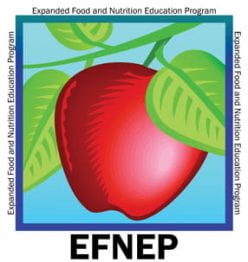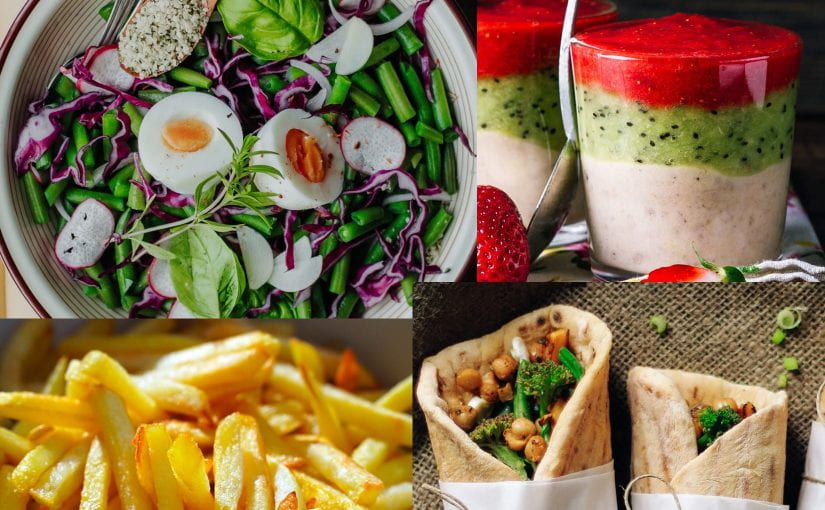Have you been wondering about whether a plant-based diet would be right for you?
“Plant-based” has been a buzz word in social media the past couple of years, and some information says that the plant-based eating pattern is the miracle cure to our health woes. Is that to be believed?
Plus, are you confused about whether there any difference between plant-based, plant-rich, plant-forward, vegetarian, vegan, pescatarian, flexitarian, and whole-food eating patterns?
Let’s dive right in and explore, including the role of French fries in these diets.
A spectrum of eating patterns
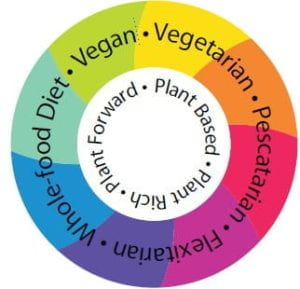
The words describing these eating patterns are evolving, which is why there are so many from which to choose. The following definitions may not suit all those who claim to follow that eating pattern but most folks would agree with the general intent.
Plant-based, plant-rich, and plant-forward are mainly interchangeable and cover a spectrum of eating patterns:
- Vegetarians eat mainly plants but may eat eggs and dairy (lacto-ovo vegetarians) and honey.
- Some vegetarians may also eat fish or other seafood—those are pescatarians. This is very similar to the Mediterranean diet.
- Vegans eat no animal products at all—so no meat, seafood, dairy, eggs, honey, or fats derived from animals (like butter or lard)—and sometimes do not wear or own any products made from animals.
- Flexitarians are also known as semi-vegetarians. They incorporate some meat into their diet though their diet is mainly plants.
- Whole-food diets focus on eating nutrient-dense foods with little or no processing. It does not eliminate meats or animal products, but does emphasize the inclusion of whole fruits, whole vegetables, whole grains, nuts, seeds, and legumes.
Plant-based eating patterns and the Dietary Guidelines for Americans (DGA) 2020-2025
Plant-based eating may seem fashionable, but it’s important to recognize that the DGA supports the ideas behind these eating patterns—and has for years. It’s built into the MyPlate messages!
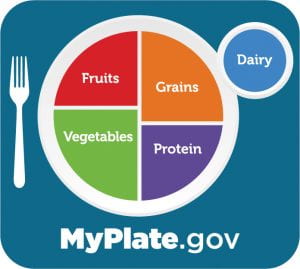
- Make half your plate vegetables and fruits [whole is a healthier choice than juice]
- Make [at least] half your grains whole grains
- Vary your proteins and keep them lean [remember to include beans, tofu, nuts, and seeds]
Research has shown that the DGA/MyPlate eating pattern can help prevent obesity, many cancers, strokes, and chronic diseases like diabetes, high blood pressure, and heart disease. Any of the plant-based diets can be a healthy choice—if done right!
Which brings me to…
The delightful potato
Potatoes are from a plant, so can be part of any of these eating patterns, right?
Nutritionally speaking, they’ve got good things to offer us:
- naturally low in fat (like most vegetables)
- fiber (especially if you keep the skin on)
- vitamins C and B-6, and minerals like potassium, magnesium, and even a bit of iron.
- …plus, they’re delicious steamed, boiled, baked, roasted…and fried.
Fried. Deep fried. French fries.
Hmmm.
The DGA also tells us to limit the total amount of fat in our diet. Ditto added sugars and sodium.
In the GO-SLOW-WHOA system for classifying foods (based on the colors of traffic lights), frying—which adds a lot of fat to foods—is one of the ways that a GO food becomes a WHOA food. Another way is to add a lot of sugar or sodium.
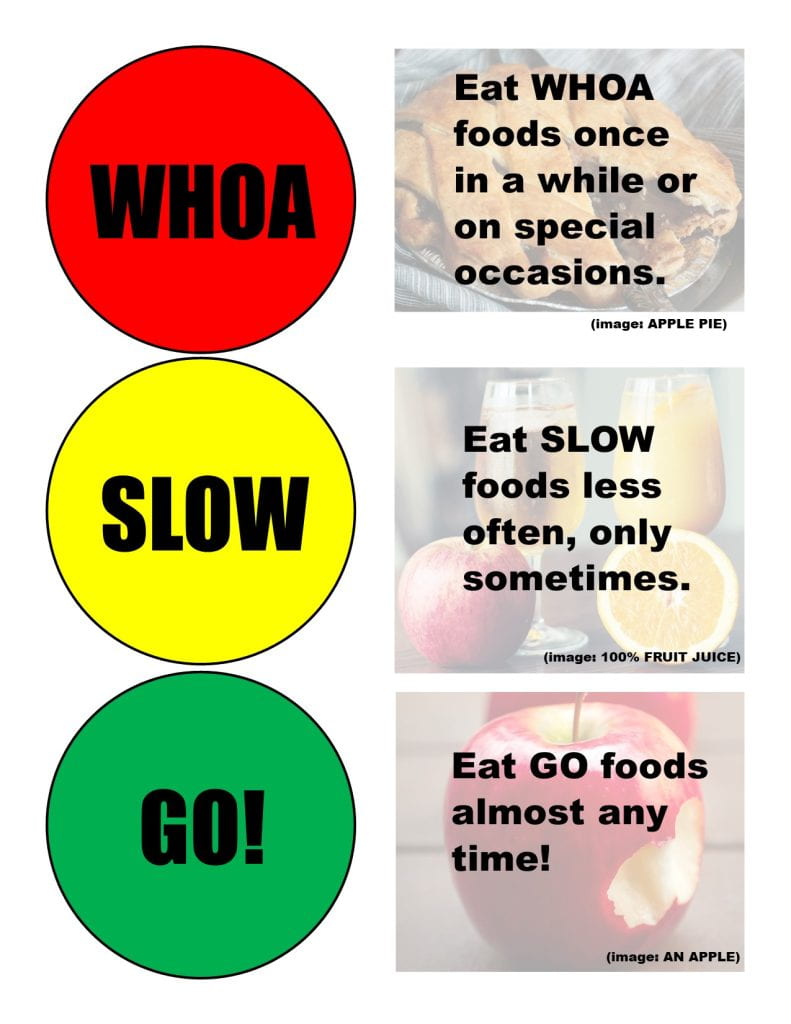
| GO | WHOA |
| Potatoes | French fries |
| Apples | Apple pie |
| Peaches | Canned peaches in heavy syrup |
| Lowfat milk | Ice cream milkshake |
| Lean ground beef | Beef hot dogs |
| Pasta made from whole wheat | Croissants and doughnuts |
French fries—or a doughnut—may be made from plants, but that does not automatically make it a healthy choice. The best plant-based choices are nutrient dense—that is, they have fiber, vitamins, and minerals—and aren’t empty calories with a lot of fat, added sugar, and sodium.
Ok, I’m convinced…how do I get started?
Going whole hog (pun intended) is not likely to make changes stick. For best results, eating more healthily should be seen as a lifestyle change, not a temporary diet. Here are some ideas:
If you (and your family) usually eat a lot of meat, consider starting by making one day meatless. Already doing Meatless Monday? Add one more day into the mix.
Does a whole meatless day seem too overwhelming? Start with just one meal: how about breakfast? Have oatmeal with fruit and nuts. Or on the next Taco Tuesday dinner, make them filled with beans instead of beef or chicken.
Focus on incorporating more whole veggies and fruits by following the MyPlate proportions—aim to make half your plate veggies and fruits at every meal.
Lower the amount of highly processed foods by replacing them with something minimally processed: instead of potato chips with cream cheese dip, offer baby carrots and celery sticks with hummus.

You can get what you need nutritionally by following a plant-based diet, though it may require a little mindfulness on your part. Those who choose not to eat any animal products do have some special concerns nutritionally—for example, vegans need to be sure to choose effective non-animal sources of vitamin B12 (perhaps by adding in fortified cereals or nutritional yeast) and to get enough calcium (replacing dairy milk with soy milk is one option) and protein (faithfully incorporating beans, lentils, and soy-based products is a sensible approach).
Need some help getting started?
Our nutrition educators—whose classes are based on MyPlate—would love to work with you. These fun, supportive, interactive classes can be in a group setting or one-on-one, and in person or using Zoom. They provide up-to-date nutrition information with tips you can incorporate right away at home, and there is at least one delicious, healthy, affordable recipe featured in each class. EFNEP is for income eligible families and youth; contact Michelle Leveski, mml39@cornell.edu or (518) 234-4303 x 115. Healthy Connections is for folks not eligible for EFNEP: contact Kimberly Ferstler, kmf239@cornell.edu or (518) 234-4303 x 120. Or fill out our online form to let us know of your interest: tinyurl.com/FreeNutritionClassesForAll
